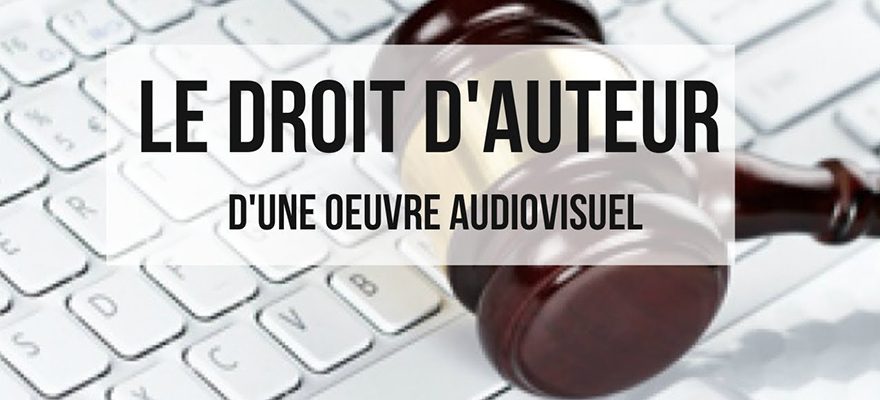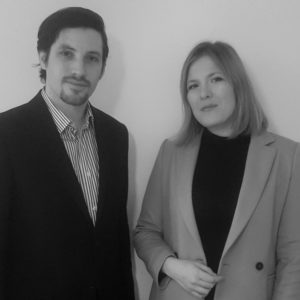

Sébastien Lachaussée & Elisa Martin-Winkel
French IP : Who are the authors of audiovisual works ?
Article L 113-7 of French Intellectual Property Code (CPI) provides that « Authorship of an audio-visual work shall belong to the natural person or persons who have carried out the intellectual creation of the work. Unless proved otherwise, the following are presumed to be the joint authors of an audio-visual work made in collaboration: 1°.the author of the script;2°.the author of the adaptation;3°.the author of the dialogue;4°.the author of the musical compositions, with or without words, specially composed for the work;5°.the director.».
Such list of authors of audio-visual work is non exhaustive and other contributors may claim authorship of the work as long as they prove their effective contribution to « the intellectual creation of the film » (Paris, 9 oct. 1995). The person that wishes his authorships to be recognized shall present proof of his creative contribution. Such proof is difficult and many claims have been rejected: those of a director of photography who did not prove that his contribution was more than a technical performance (TGI Paris, 8 févr. 2008), those of a cameraman who remained only a technician under the guidance of the director (Paris, 2 nov. 1981), those of actors that contributed to the dialogues of a film (Paris, 16 janv. 1992) …
On the contrary, if a crew member or an actor provides services outside of its primary duties and interfere in the creative process of the film then he could claim authorship of the film.
Furthermore, it is necessary to consider the presumption of authorship as provided in article L 113-1. Indeed, it states that « Authorship shall belong, unless proved otherwise, to the person or persons under whose name the work has been disclosed. ». This means that when a work is made available to the public, the author is presumed to be the person named on the credits of such work.
Disclosure is to be considered rather broadly: mentions in the credits of the film, name appearing on a screenplay (Civ. 1re, 3 juill. 1990) or on newspapers articles, even if such name does not appear in the credits (TGI Paris, 29 mai 1987). However, this presumption of authorship does not apply to equivocal or unclear credits such as « with the assistance of » or « with the participation of ». (CA Paris, Paris, 12 janvier 2001, confirmed by Cass. 1re civ., 28 oct. 2003, S. Kazi c/ Desjardins, Bull. civ. I, n° 218, p. 171). Nonetheless, such credits remain hazardous for a producer and it is strongly recommended to provide credits free of any ambiguities.
Finally, physical implementation and pure technical services are not sufficient to confer any authorship on a work (Kazi c/Desjardins above). Similarly, the benefit from the presumption was denied to a film technician under whose name the film was disclosed as the documents provided in his file established that he « did not collaborate to the intellectual creation of the work (…) but was in charge for filming and editing the film, and technical services » (CA Paris, pôle 5, 2e ch., 26 févr. 2016, n° 15/04724). Regarding ordered films, it was found that when the creative freedom of the directors is totally limited by the provisions of their agreements as they commit to make any requested modifications (additions, deletions, contents of the screenplay and comments, editing, rhythm..) they cannot benefit of any authorship (Civ. 1re, 30 sept. 2003).
In view of the above it appears that authorship of a film may be widely claimed. To avoid conflicts, it s necessary for a producer on the one hand to provide the collaborators of the film with appropriate agreements and on the other hand to manage the production of the film so that each contributor strictly carries out the services he is entrusted to, especially when it comes to services related to artistic creation. While drafting the agreements it is notably essential to precisely define the tasks and missions entrusted to the collaborators and technicians and the corresponding credits. Therefore, it is wise for a producer to consult wit a specialized lawyer who will study the specificities of the project and will draft and negotiate the necessary agreements at best for the parties.
SHARE THIS ARTICLE
CONTACT
OUR OFFICES
INFORMATION
sl@avocatl.com
PHONE
+33.1.83.92.11.67
Address
121, boulevard de Sebastopol
75002 Paris
5th floor / Staircase A
Follow us :
Newsletter
Please enter your e-mail :
